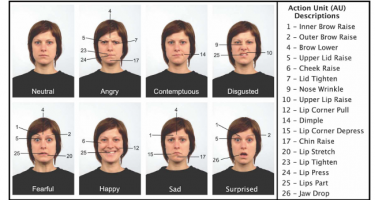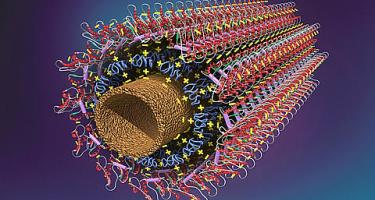Helen Mayberg, M.D., discussed the three markers her lab developed to monitor and define recovery in patients who have been successfully treated for treatment-resistant depression with deep brain stimulation (DBS).
Event coverage
Primary tabs
Coverage begins in 2006 for the ScienceWriters meeting and 2009 for the AAAS meeting. To see programs for past ScienceWriters meetings, go to the ScienceWriters meeting site.

Scientists suggest depression could be a movement problem
Research from the Icahn School of Medicine at Mount Sinai in New York and Emory University in Atlanta is providing a new view of depression.

Masks usher revelations on how we perceive faces during communication
Face masks worn during the pandemic unveiled insights into the ways humans process and interact with faces, scientists say.

Finding faces during a pandemic
Mask-wearing raises critical questions: If we obscure the face, what would we focus on when seeing another person? How would we show emotions, or engage in conversation?
Scientists have looked to gene sequencing to understand the role of symmetry in the evolution of life. However, their method is limited by the availability of sequencing information, and they cannot always account for changes in DNA over a lifespan.

These tiny tubes could one day be your water filter
New physics-driven approaches may offer a more energy-efficient and cost-effective method for water purification processes like seawater desalination.

Mammals go head-to-horn in virtual matchups in March Mammal Madness
The red kangaroo faces the harpy eagle in March Mammal Madness (MMM), a virtual tournament that ranks mammals in simulated battles to see which one might win.
People are connected through language, music, the Internet, and social media. And now, there is a map that illustrates the interconnectedness of the online world.
Mar. 2, 2022The perceived conflict between science and religion has a long and eventful history in the United States, but there is hope for reconciling these two seemingly feuding worldviews in the classroom